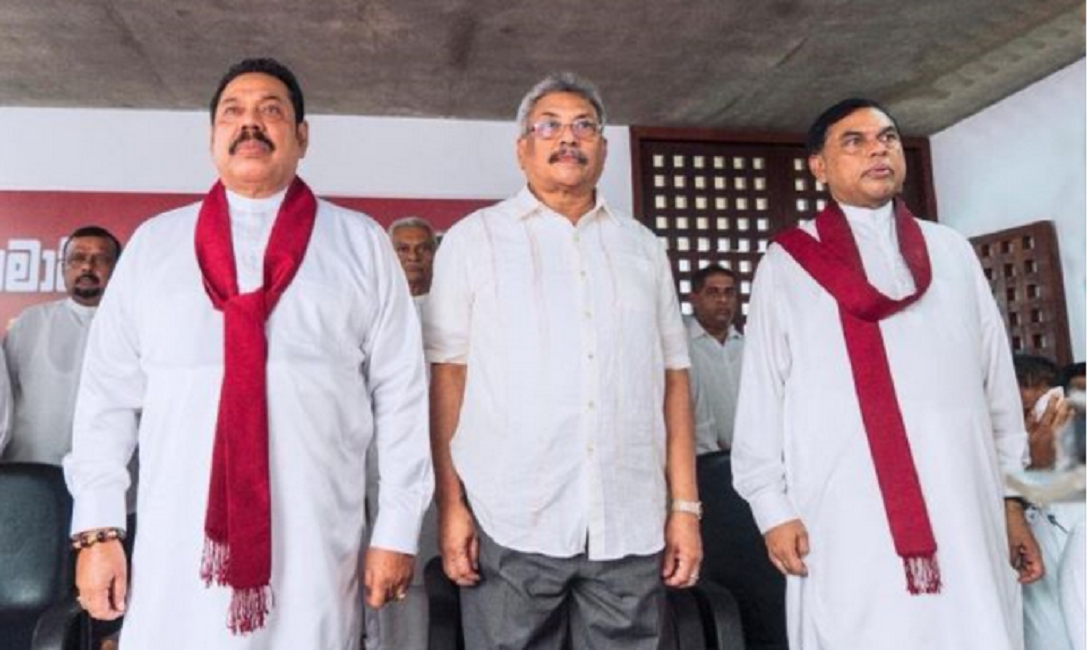By P.K. Balachandran
The regime of the Rajapaksas, established in November 2019 and consolidated in August 2020, is facing multiple problems, both domestic and external, economic as well as political.
Divisions have arisen in the ruling Sri Lanka Podujana Peramuna (SLPP) and also with alliance partners. There is difficulty in kick-starting the economy derailed by the COVID-19 pandemic, mainly due to flaws in the decision making and implementing apparatuses. The external debt repayment issue is looming in the horizon.
And last, but not the least, there is pressure from the UN Human Rights Council (UNHRC) on war time and post-war accountability issues with the Council getting authorization for the setting up of a mechanism to collect data on alleged war crimes and rights violations after the war.
The government is under pressure from India (and also the UNHRC) to hold the Provincial Council (PC) elections, not held since 2018. India insists that the 13 th. Amendment (13A) of the constitution which had set up the semi-autonomous, elected Provincial Councils, should not be repealed. The leadership is divided on the issue of PC elections and also on retaining the 13A.
President Gotabaya Rajapaksa is against devolution power, especially as envisaged by the 13A. “Sri Lanka will not allow other countries to achieve their geopolitical needs by introducing separatism under the guise of power devolution in the island nation”, he told a village audience recently.
Nationalist and Sinhala-majoritarian hardliners, who claim to be the architects of the SLPP’s victory in the November 2019 and August 2020, elections, strongly back the President on this issue. But Prime Minister Mahinda Rajapaksa and SLPP organizer Basil Rajapaksa look at Provincial Councils with devolved power as a useful political institution. They are keen on holding elections to the Councils.
Nevertheless, considering the opposition to the Provincial Councils and to holding elections to them now, Prime Minister Mahinda Rajapaksa has sought a parliamentary committee to go into the system under which they could be held. This issue has been pending for long. In 2018 parliament rejected the electorate de-limitation report submitted by the Delimitation Commission.
According to official sources, Provincial Council polls, if held at all, are unlikely before the end of 2021. Doubts about their being held at all have mounted since a section of Buddhist monks demanded that they should not be held before government delivers on its election promise to give a new constitution for the country.
The new constitution is expected to be centralized and Sinhala-majoritarian in character to accord with the SLPP’s voter base. But that will run into trouble with the Tamil minority.
The 11 parties which are in alliance with the SLPP are now restive complaining that the SLPP leadership does not take them into confidence before taking decisions. Their target is the SLPP organizer Basil Rajapaksa. They plan to meet President Gotabaya to apprise him of their grievances. They have decided to display their autonomy by holding May Day programs separately this year.
Due to COVID-19 triggered restrictions, the total number of jobs in the economy contracted by 160,996 in the first quarter of 2020. Overall, in 2020, unemployment had increased from 48% to 6% according to one estimate. With tourism still curbed and the Middle East labor market being down, there is no immediate relief in sight as regards jobs.
While agriculture has revived, the industrial and service sectors are sluggish with government reluctant to relax pandemic time restrictions. Sri Lanka has about US$3.5 billion foreign currency denominated debt to repay between March and December 2021.
To manage the challenge posed by the UNHRC, President Gotabaya has appointed a commission to go into alleged rights violations during the war and afterwards.
Foreign Minister Dinesh Gunawardena has appealed to Tamil leaders and agitators to present their case before the commission and also utilize the existing Office of Missing Persons and the reparations office, instead of lobbying with the international community and the UNHRC.
But the Tamils say that they have no faith in Sri Lanka’s domestic mechanisms. In justification of this dim view, they cite Prime Minister Mahinda Rajapaksa’s repeated plea that the “missing persons” had all died in the conflict.
Meanwhile, pressure is mounting on the government to take action on the report of the Presidential Commission which went into the April 21, 2019 suicide bombings in which 260 persons, mostly Catholics, were killed. Government is dithering on this report as it would be difficult to punish many named in the commission’s report, including former President Maithripala Sirisena who is now an ally of the SLPP government.
Cardinal Malcolm Ranjith has threatened to launch an agitation if the masterminds behind the bombings by Islamic zealots were not found out and all those who aided the bombers were not punished. But THE government has to tread carefully in this matter because any reckless action or unjustified actions against Muslims will alienate countries like Pakistan which supported Sri Lanka in the UNHRC recently, braving Western pressure to vote for their anti-Sri Lankan resolution.

Leave your comments
Login to post a comment
Post comment as a guest